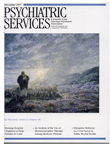Trauma and Dreams Betrayal Trauma: The Logic of Forgetting Childhood Abuse
In Trauma and Dreams, editor Deirdre Barrett, Ph.D., brings together 21 mental health professionals and scholars—for example, Robert Jay Lifton, Oliver Sacks, and Rosalind Cartwright—of varying backgrounds to share their knowledge about trauma-related dreams. Dr. Barrett is assistant professor of psychology at Harvard Medical School and director of the doctoral program in clinical-developmental psychology at Suffolk University. She is also a past-president of the Association for the Study of Dreams.
Trauma and Dreams is divided into three complementary parts. The first, Dreams After Childhood Trauma, includes chapters on children's traumatic dreams in general and dreams of children recovering from severe burns, the use of dream material to identify sexual trauma histories and to treat incest survivors, and the role of dreams in the treatment of dissociative identity disorder.
Part 2, Adult Trauma in Wars and Natural Disasters, contributes chapters on traumatic dreaming of survivors of the Vietnam War, the Holocaust, Central American political persecution, rape, and a firestorm. Finally, the third part, Traumas of Normal Living, includes chapters addressing dreams and some of life's inevitable traumas such as divorce, bereavement, and changes in neurological functioning, as well as a chapter on the relation of recurrent dreams to life events.
Trauma and Dreams has some significant strengths and weaknesses; fortunately for the reader, the positives ultimately outweigh the negatives. One of the things I enjoyed most was the multitude of views represented. No "theoretical ax" is allowed to dominate, an approach that helps the reader appreciate the immense complexity and richness of dreams and the myriad ways in which they interact with the process of adaptation to painful events in the "real" world. The chapters organized around detailed reports of individual dreams and life contexts are particularly compelling.
On the downside, there are some silly attempts to present empirical research on dreams. As a reader, I could not care less what percentage of a tiny, nonrepresentative sample had dreams that fell into a specific content category. The handful of statistically based "research" chapters (and I am a researcher as well as a clinician) are an unfortunate distraction from an otherwise engaging book. With this caution in mind, I would recommend Trauma and Dreams to anyone interested in either.
In Betrayal Trauma: The Logic of Forgetting Childhood Abuse, Jennifer Freyd, Ph.D., who is professor of cognitive psychology at the University of Oregon, sets out on an ambitious mission: to review the scientific evidence relevant to the hypothesis that child abuse is most likely to be forgotten when the perpetrator is a trusted caregiver. The result is a book of stunning clarity and objectivity that contributes a great deal to the literature on psychological trauma.
Betrayal Trauma consists of seven related chapters that weave together personal anecdotes, the underpinnings of the theory, a review of the recovered-memory controversy, and critical examination of the relevant scientific literatures in clinical and cognitive psychology. It ends with some broader conclusions about the recovered-memory debate and child abuse. The author's primary thesis is that children have an evolutionarily based cognitive bias to avoid processing information suggestive of betrayal by a trusted caregiver. The force motivating such selective inattention is straightforward enough: it is adaptive, in the short run, for a child to avoid knowledge—such as "Mommy hurts me"—that would disrupt attachment-seeking behavior on which a child's very survival depends.
In Betrayal Trauma, Dr. Freyd marshals an impressive array of scientific evidence to critique the above hypothesis, and she does so in a way that is accessible to a broad audience. This book sheds light on some of the thorniest questions about the delayed recall of childhood abuse without resorting to emotional pleas or sanctimonious grandstanding. Dr. Freyd lets the data speak for themselves, which results in one of the finest integrative reviews of traumatic-memory research to come along in the past decade.
The main complaint I have about the book is that Dr. Freyd constructs a misleading either-or argument that the "forgetting" of childhood abuse is motivated exclusively by the betrayal of trust and not the avoidance of emotional pain. Data from some studies she cites to support her theory show that "traumatic forgetting" has multiple determinants, exemplified by subjects who forget about abuse perpetrated by a stranger. Also, at times her opinions on clinical and social matters seem idiosyncratic and misplaced, given the objectivity that pervades most of her writing. Considering that her training is in cognitive (not clinical) psychology, I forgive her.
Ultimately, Betrayal Trauma is a triumph of objective evidence over impassioned pleas, politics, and media sound-bites. This book is a must-read for anyone who has a personal or professional stake in how our society deals with the issue of childhood abuse and its treatment.
Dr. Black is senior instructor in psychiatry at the University of Rochester School of Medicine and Dentistry in Rochester, New York.



